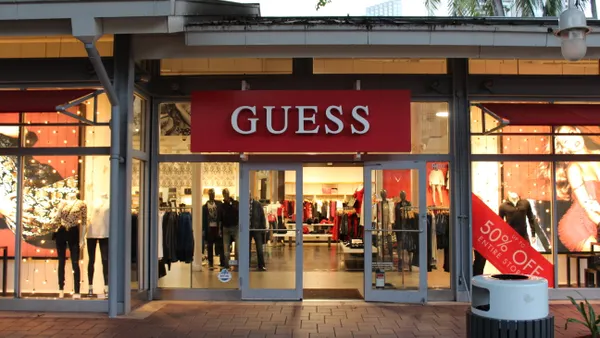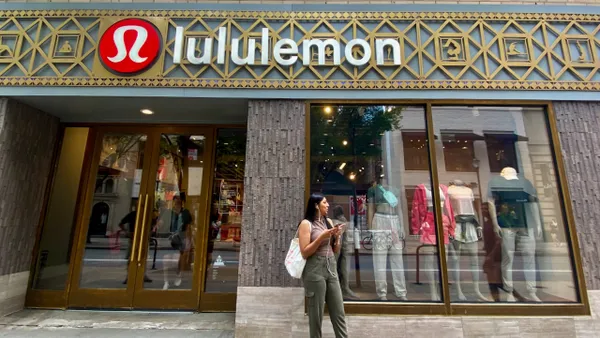Dive Brief:
- Sycamore Partners is exploring a possible acquisition of J.C. Penney, according to a Reuters report that cited anonymous sources. A J.C. Penney spokesperson declined to comment to Retail Dive on the report.
- The private equity firm — which owns Belk and Talbots, among other retail companies — is in "preliminary" talks around Penney should the department store chain fail to reach a reorganization deal with lenders, according to Reuters.
- The news service also reported that Penney has been "in touch with" key landlords including Brookfield Asset Management and Simon Property Group. In one potential scenario, Sycamore, Brookfield and Simon would make a bid for Penney. However no deal is certain, the Reuters report said.
Dive Insight:
Talk of a Penney acquisition underscores just how much the department store retailer's fate is up in the air.
Penney filed for Chapter 11 last month with a plan to reorganize around a smaller footprint and less debt. But the company's financing package (known as debtor-in-possession, or DIP, financing) and agreement with key lenders carry milestones, triggers and alternative options.
Depending on several factors — including the retailer and lenders agreeing on a go-forward business plan by July — Penney could reorganize under lender ownership, sell to a third party, or liquidate entirely. Not even Penney's DIP loan is a sure thing. Some of the money is being held until July, contingent on hitting certain milestones.
Sycamore's reported interest in Penney tracks with the firm's continued activity in the retail sector, battered as it has been by traffic declines at malls and structural changes in the industry.
Over the years, Sycamore has been among retail's most prolific private equity acquirers, with fairly deep experience in apparel, including Nine West, which filed for bankruptcy under a load of debt leftover from Sycamore's leveraged buyout of the Jones Group.
Sycamore's last big retail buyout — indeed, one of the last big retail deals since the so-called "retail apocalypse" began — was Staples, in summer 2017. Private equity acquisitions of retailers have dropped off since 2016. That's likely not a coincidence.
Not only has the industry seen a surge of bankruptcies and liquidations — a majority of retailers to file for bankruptcy have been private equity vehicles. The combination of buyout debt, fierce price competition, and rapidly shifting consumer behaviors and technological change has been a disaster for many private equity-owned retailers.
Most recently, Sycamore cut a deal with L Brands for a majority interest in the struggling (but still very large) Victoria's Secret banner. That deal never went through, though. In April, Sycamore told L Brands their merger deal was off after the retailer shuttered Victoria's Secret stores in response to the COVID-19 pandemic. L Brands balked at Sycamore's reasoning and sued, and ultimately they mutually agreed to drop the deal.
But its brush with Victoria's secret is a signal that Sycamore hasn't given up entirely on the industry. Potential talks with Simon and Brookfield — both of which teamed up with Authentic Brands last year to buy Forever 21 out of bankruptcy — is a sign of how important Penney might be to its landlords. A liquidated Penney would leave hundreds of anchor spots dark in malls around the country.














